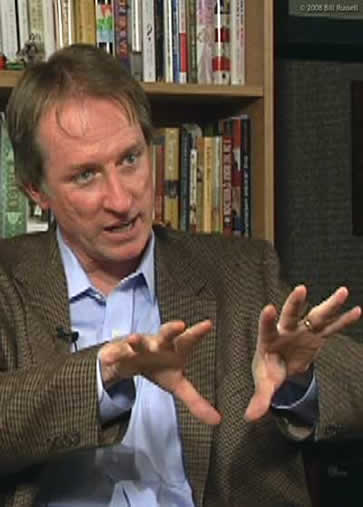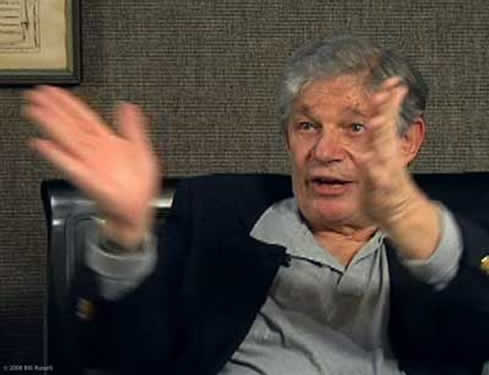 |
Charles Raison
... psychiatrist and meditation researcher. Dr. Charles Raison served as Director of Emergency Services and Associate Director of Consultation Evaluation Services at UCLA. In 1999, he joined Emory University’s Department of Psychiatry and Behavioral Sciences, and is Director of the Behavioral Immunology Clinic. Lecturing internationally, he is also co-principle investigator both studying the immune system relative to depression and fatigue, and the effects of Buddhist compassion meditation. He’s deeply involved in Emory University and Holiness the Dalai Lama’s Science Education Project for Tibetan Buddhist Monks. |
Life itself is challenging comfy orthodoxies that have dominated Western thinking since Newton, reductionism and classical physics captured our imagination centuries ago. Physics...meet biology.
“We’re at the edge of what we know. I don’t deduce my life. I live it,” says theoretical biologist Stuart Kauffman. He and Charles Raison, a psychiatrist and researcher, explore how emerging Western science and Tibetan Buddhism might inform each other.
Both trained first as medical doctors. “I was intent on casting some light into how people generate intense positive emotions,” says Dr. Raison of his transition into research focused on the immune system’s responses to depression, fatigue and Buddhist compassion meditation.
Contrary to our human longing for certainty, both Drs. Kauffman and Raison feel hope and perhaps even sacredness may rest in an essential “unknowable-ness” and mystery which nature appears to embody.
“Biology is not like physics," says Dr. Kauffman. "We’ve been led to believe that everything in the universe is mathematizable. (In biology,) we cannot do what Newton told us to do -- have the variables and the laws and whatever, and then calculate. We don’t have any mathematics for that which is going to come into existence.”
Dr. Kauffman’s ideas about a “partially lawless” universe are grounded in countless examples of Darwinian pre-adaptations -- properties not useful in the current environment which might turn out to be useful in another environment.
“It’s probably impossible (to see ahead of time all possible Darwinian pre-adaptations for all species alive now.) There may be essentially infinite selective environments across time and space,” says Dr. Raison, affirming what they both say is widely accepted scientific observation.
Dr. Kauffman continues, “When I first came across the fact that we cannot pre-state Darwinian pre-adaptations in our daily lives and in the evolution of the biosphere and the economy, for about a minute and a half, I felt bereft. I thought, ‘I don’t know what to do.' Then I thought, ‘Actually, this is hopeful! We’ve been doing this for 3.8 billion years!' Somehow, we know how.
“I think our mind is doing things that -- just like the biosphere -- are evolving in ways that cannot be pre-stated. But it’s doing it anyway. We live our life with faith and courage, which in the Kantian sense is somehow sublime in the face of not knowing, in this sense of mystery, because somehow it’s the mandate of life. Maybe it gives us the possibility of making (things) better -- these are our choices.”
Ever the psychiatrist, Dr. Raison concludes, “There's something about that state then that at least opens a door for you to have an emotional experience -- you can choose to have hope.”
[This Program was recorded March 17, 2008, in Atlanta, Georgia, US.]
 9:45 9:45 |
 11:39 11:39 |
 17:35 17:35 |
 18:18 18:18 |
|








